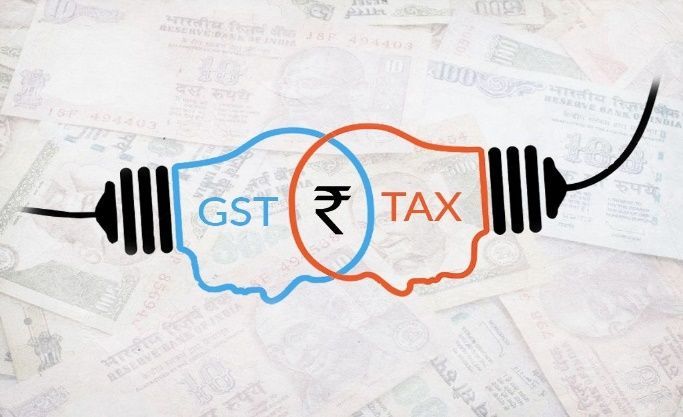To legally operate an Airbnb rental, hosts often need to secure the appropriate permits and licenses. These may vary depending on the location and local regulations. Some cities require specific permits for short-term rentals, and obtaining them is crucial to avoid fines or penalties or any legal issues. Hosts should check with local authorities to determine the necessary paperwork for their specific area. Department of Tourism in their respective state governments register Homestays and Bed and Breakfast establishments which includes permits from various local authorities. When registered with the Department of Tourism, the owners receive tax benefits on the earnings.
The Nitty-Gritty of Airbnb Rentals: Taxes and Legal Requirements
As the popularity of Airbnb continues to soar in India, many individuals are capitalizing on the opportunity to earn extra income by hosting guests in their homes. However, with great hosting comes great responsibility, particularly when it comes to understanding and navigating the complex landscape of tax filing in the country. In this guide, we will break down everything Airbnb hosts need to know about essential laws and regulations, to operate within the bounds of the law.
Table of Contents
1. Navigating Through Legal Complexities:
Short-term rental regulations encompass the following aspects:
Permits and Licenses:

Taxation:
Airbnb income is subject to income tax, and hosts are required to report their earnings accurately. Goods and Services Tax in India ranges from 12% to 18% of the accommodation charge, inclusive of any cleaning fee. The tax rates are determined based on the average nightly rate of the reservation. Hosts should keep detailed records of rental income and associated expenses to facilitate smooth income tax filing.
Safety and Health Regulations:
Local authorities may set standards for property safety, sanitation, and insurance. Hosts should be aware of these regulations and ensure their property meets the necessary criteria. This may include fire safety measures, health and hygiene standards, Food Safety Standards and the provision of essential amenities.
Insurance Coverage:

Hosts must carefully consider insurance coverage for their Airbnb property. Standard homeowner's insurance may not provide adequate protection for short-term rentals. Specialized insurance policies for short-term rentals can cover property damage, liability, and other potential risks. Understanding the insurance requirements in your area is crucial for protecting both the host and guests.
Goods and Services Tax (GST):

Airbnb hosts, anticipating an annual commercial turnover from the sale of goods and services equal to or below INR 20 lakhs (or below INR 10 lakhs in special category states identified under Article 279A(4)(g) of the Constitution of India), are presently exempt from Goods and Services Tax (GST) registration. In this scenario, Airbnb will remit the entire GST collected from guests directly to the tax authorities on behalf of these hosts.
Hosts expecting an annual turnover exceeding the GST registration threshold (INR 20 lakhs or INR 10 lakhs in special category states) must register for GST and obtain a GST number (GSTIN). These hosts are responsible for remitting GST on reservations (net of any deducted Tax Collected at Source or TCS) to tax authorities. Airbnb is then tasked with depositing TCS against the GSTIN(s) provided by hosts.
Tourist or Occupancy Taxes:

Many locations impose additional taxes on short-term accommodations to fund local tourism initiatives or infrastructure projects. Hosts are generally responsible for collecting and remitting these taxes. It's essential to research and stay informed about the specific tourist or occupancy tax requirements in the area where the Airbnb property is located.
2. Significance of Adhering to Regulations

Failure to adhere to local laws may lead to significant fines, legal actions, or the removal of your Airbnb property from listings. Compliance is essential not only to avoid penalties but also to uphold a reputable and trustworthy hosting operation.
Tips for Compliance and Success:
1. Maintain Detailed Records: Keep thorough records of rental income, expenses, permits, and licenses. Detailed documentation not only facilitates tax filing but also serves as evidence of compliance in case of any inquiries.
2. Consistent Research: Laws have the potential to change swiftly; make it a routine to stay in touch with local authorities and keep yourself informed about the regulations impacting your area.
3. Active Involvement: Actively participate in discussions with local government and community organizations to comprehend and contribute to policy developments.
4. Stay Informed and Seek Professional Advice: The legal landscape and tax regulations can change, so it's essential for hosts to stay informed about updates. Contemplate seeking guidance from legal professionals who specialize in short-term rental laws to guarantee complete compliance.
Property managers can play a crucial role in navigating legal requirements for Airbnb hosts. They also provide valuable insights into permit requirements, and Airbnb tax obligations. Property managers guide hosts through the intricacies of compliance, reducing the risk of fines or legal issues. Additionally, property managers often establish proactive relationships with local authorities, fostering a positive working environment for hosts.
FAQs
-
What is the policy of Airbnb?
Adhere to the host's established house rules. Disruptive gatherings are strictly prohibited; for further details, refer to our Community Disturbance Policy. Regarding check-in, guests are expected to honor the host's designated check-in window and must not check in before or after the specified time without obtaining prior approval from the host.
-
Is Airbnb taxable in India?
Travelers who reserve Airbnb listings situated in India will incur the following taxes as part of their booking: Goods and Services Tax (GST) in India, ranging from 12% to 18% of the accommodation charge, which includes any applicable cleaning fees.
-
How can I get Airbnb license in India?
Submit your application to Airbnb for verification, which will assess both the application and the proposed tour experience. Airbnb typically takes approximately a week to respond to applications. Prior to initiating the application process, incoming hosts should ensure they obtain all necessary permissions in accordance with local laws.
Ready to turn your Airbnb venture into a seamless success?



